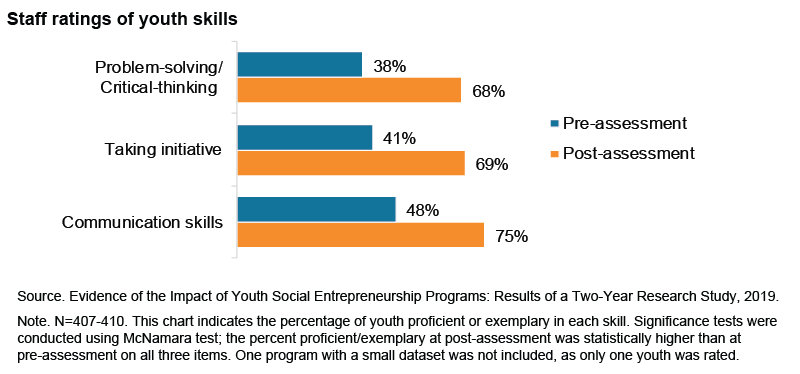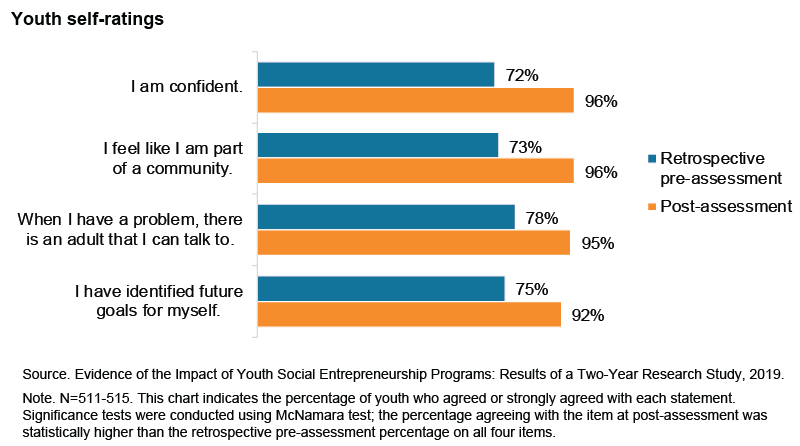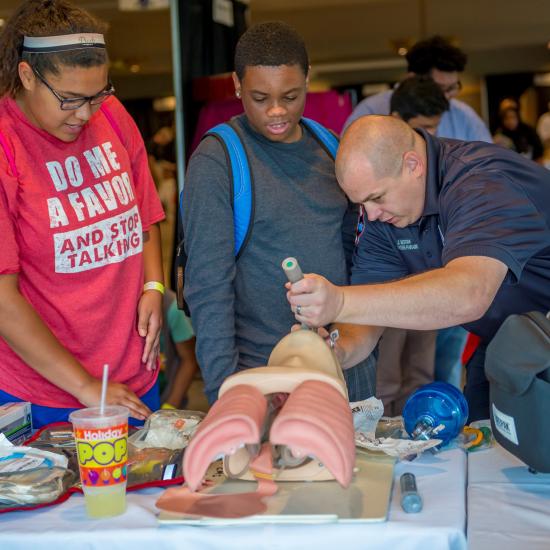Youth Social Entrepreneurship: Equipping Youth with Critical Job Skills
Demographers predict that by 2026 there will be 2 million jobs in the Twin Cities, yet only 1.6 million working-age adults (age 18-64) to fill those jobs. At the same time, unemployment rates remain high among youth of color. (More on Minnesota’s workforce shortage.)
One of the pieces to solving this puzzle is equipping youth to fill these jobs. The Sundance Family Foundation invests in Youth Social Entrepreneurship (YSE) programs: youth-centric, youth-led enterprises (i.e., businesses or community social initiatives) that include the development of entrepreneurial thought, community engagement or social capital, social-emotional learning or youth personal agency, and workforce readiness.
Wilder Research recently completed a two-year research study on the impacts of YSE programs with youth. The 11 participating YSE programs served almost 900 youth from fall 2016 through summer 2018; 82% were indigenous or youth of color.
YSE model contributes to youth developing work readiness skills.
During the evaluation, program staff assessed youth on 12 items related to work readiness, including professional skills, interpersonal skills, and other skills, and found that youth improved in 11 of 12 items measured (all except “attendance,” which was already high).
The item with most improvement was “quality of work,” in which 52% of youth improved and 36% of those who were not proficient at the time of the pre-assessment demonstrated proficiency at the post-assessment.
Youth developed interpersonal and social-emotional skills through YSE programs.
Staff reported that 30% or more of youth gained proficiency on problem-solving/critical-thinking, taking initiative, and communication skills. In addition, the proportion of youth proficient on these items at post-assessment was 27-30 percentage points higher than at the pre-assessment.

In addition, youth self-reported gains in social-emotional skills. Over 90% of youth agreed with the following social-emotional skill statements after participating in their respective programs: feeling confident, feeling part of their community, having an adult to talk to about problems, and having future goals for themselves.

While small community-based organizations may not solve the worker shortage on their own, they play a critical role in equipping youth with professional and interpersonal skills and confidence to enter the workforce. They have collectively demonstrated the effectiveness of the YSE model.
Read the Impact of Youth Social Entrepreneurship results:
- Evidence of the Impact of Youth Social Entrepreneurship Programs: Results of a Two-Year Research Study
- Evaluation of Twin Cities Youth Social Entrepreneurship Programs: Results from a Point-in-Time Research Study of 11 YSE Programs, Funded by the Sundance Family Foundation
Photo credit: Sundance Family Foundation
